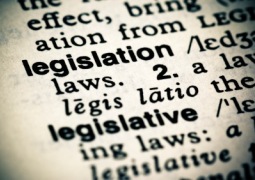Media Statement: Basic Education Committee Adopts Basic Education Laws Amendment Bill
Media Statement: Basic Education Committee Adopts Basic ... Parliament of South Africa


Parliament Adopts Basic Education Laws Amendment (BELA) Bill

Introduction
The Portfolio Committee on Basic Education has today adopted the Basic Education Laws Amendment (BELA) Bill. This significant milestone aligns the Bill with the sustainable development goals (SDGs) and the ongoing transformation agenda of the basic education sector.
Key Amendments
- Grade R as Compulsory School-Starting Age
- Penalties for Parents Neglecting School Attendance
- Prohibition of Corporal Punishment
- Language Policy and Approval Process
- Authority of Head of Department in Learner Admissions
- Home Education Requirements
- Exclusion of Alcohol Sales on School Premises
- Disclosure of Financial Interests by Governing Body Members
SDGs and Basic Education
The adoption of these amendments is in line with the SDGs, particularly SDG 4 which aims to ensure inclusive and equitable quality education and promote lifelong learning opportunities for all. By implementing these changes, the committee seeks to improve the education landscape and uphold the right to basic education as enshrined in section 29(1) of the Constitution of the Republic of South Africa, 1996.
Committee Deliberations
The committee extensively deliberated on all clauses in the Bill, carefully considering the input from various stakeholders. Through public hearings, oral submissions, and thousands of written submissions, the committee ensured that the legislation reflects the needs and aspirations of the broader community.
Next Steps
The Bill, along with the committee’s report, will now be referred to the National Assembly for further debate and consideration.
Contact Information
For media enquiries or interviews with the Chairperson, please contact the committee’s Media Officer:
- Name: Rajaa Azzakani (Ms)
- Tel: 021 403 8437
- Cell: 081 703 9542
- E-mail: razzakani@parliament.gov.za
SDGs, Targets, and Indicators
| SDGs | Targets | Indicators |
|---|---|---|
| SDG 4: Quality Education | 4.1 By 2030, ensure that all girls and boys complete free, equitable, and quality primary and secondary education leading to relevant and effective learning outcomes | The adoption of the Basic Education Laws Amendment (BELA) Bill aims to align the education system with the right to basic education as enshrined in the Constitution of South Africa. |
| SDG 4: Quality Education | 4.2 By 2030, ensure that all girls and boys have access to quality early childhood development, care, and pre-primary education so that they are ready for primary education | The amendment making Grade R the new compulsory school-starting age contributes to ensuring access to quality early childhood education. |
| SDG 4: Quality Education | 4.3 By 2030, ensure equal access for all women and men to affordable and quality technical, vocational, and tertiary education, including university | No specific indicators mentioned in the article. |
| SDG 4: Quality Education | 4.4 By 2030, substantially increase the number of youth and adults who have relevant skills, including technical and vocational skills, for employment, decent jobs, and entrepreneurship | No specific indicators mentioned in the article. |
| SDG 4: Quality Education | 4.5 By 2030, eliminate gender disparities in education and ensure equal access to all levels of education and vocational training for the vulnerable, including persons with disabilities, indigenous peoples, and children in vulnerable situations | No specific indicators mentioned in the article. |
| SDG 4: Quality Education | 4.6 By 2030, ensure that all youth and a substantial proportion of adults, both men and women, achieve literacy and numeracy | No specific indicators mentioned in the article. |
| SDG 4: Quality Education | 4.7 By 2030, ensure that all learners acquire the knowledge and skills needed to promote sustainable development, including, among others, through education for sustainable development and sustainable lifestyles, human rights, gender equality, promotion of a culture of peace and non-violence, global citizenship, and appreciation of cultural diversity and of culture’s contribution to sustainable development | The amendment confirming that corporal punishment is no longer allowed at schools aligns with promoting a culture of peace and non-violence in education. |
| SDG 4: Quality Education | 4.a Build and upgrade education facilities that are child, disability, and gender sensitive and provide safe, non-violent, inclusive, and effective learning environments for all | No specific indicators mentioned in the article. |
| SDG 4: Quality Education | 4.b By 2020, substantially expand globally the number of scholarships available to developing countries, in particular least developed countries, small island developing States, and African countries, for enrolment in higher education, including vocational training and information and communications technology, technical, engineering, and scientific programmes, in developed countries and other developing countries | No specific indicators mentioned in the article. |
| SDG 4: Quality Education | 4.c By 2030, substantially increase the supply of qualified teachers, including through international cooperation for teacher training in developing countries, especially least developed countries and small island developing States | No specific indicators mentioned in the article. |
Behold! This splendid article springs forth from the wellspring of knowledge, shaped by a wondrous proprietary AI technology that delved into a vast ocean of data, illuminating the path towards the Sustainable Development Goals. Remember that all rights are reserved by SDG Investors LLC, empowering us to champion progress together.
Source: parliament.gov.za

Join us, as fellow seekers of change, on a transformative journey at https://sdgtalks.ai/welcome, where you can become a member and actively contribute to shaping a brighter future.







